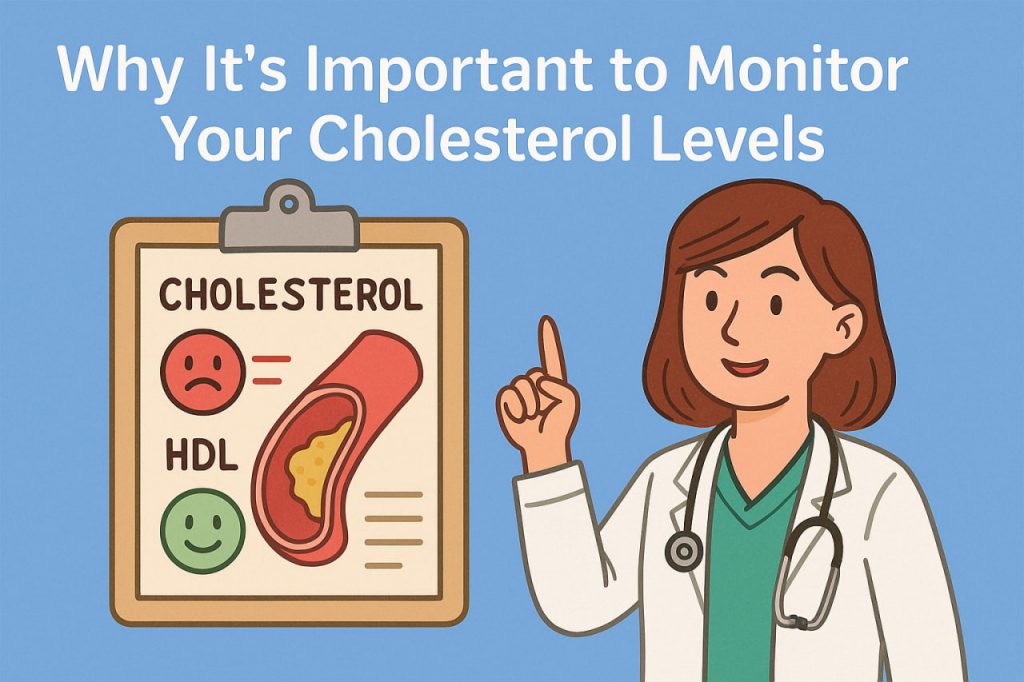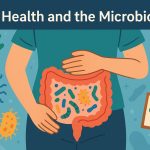Cholesterol is a waxy, fat-like substance found in your blood. While your body needs some cholesterol to build cells and produce hormones, too much of it—especially the “bad” kind—can lead to serious health problems. Monitoring and managing cholesterol is key to preventing heart disease, stroke, and other life-threatening conditions.
What Is Cholesterol and Why Does It Matter?
Cholesterol comes from two sources: your liver and the foods you eat. It travels through your bloodstream in lipoproteins, which are particles made of fat and protein.
There are two main types:
- LDL (Low-Density Lipoprotein) – Often called “bad” cholesterol. It can build up in the walls of arteries and form plaques, which narrow or block blood flow.
- HDL (High-Density Lipoprotein) – Known as “good” cholesterol. It helps remove LDL from the bloodstream by transporting it back to the liver for disposal.
Maintaining a healthy balance between LDL and HDL is crucial for protecting your cardiovascular system.
Why High Cholesterol Is Dangerous
When LDL cholesterol is too high, it can accumulate in the arteries, leading to:
- Atherosclerosis: Hardening and narrowing of the arteries
- Heart attacks: Caused when blood flow to the heart is blocked
- Strokes: Caused when blood flow to the brain is interrupted
- Peripheral artery disease: Poor circulation in the limbs
High cholesterol has no symptoms in most people, which is why regular testing is vital.
Who Should Monitor Cholesterol?
Everyone should know their cholesterol levels, especially if they:
- Are over the age of 40
- Have a family history of heart disease
- Are overweight or physically inactive
- Have high blood pressure or diabetes
- Smoke or consume an unhealthy diet
Doctors recommend a lipid panel—a simple blood test—to check cholesterol every 4–6 years for healthy adults, or more often for those at risk.
How to Maintain Healthy Cholesterol Levels
Even if your levels are high, lifestyle changes can significantly reduce your risk:
- Eat heart-healthy foods: More fruits, vegetables, whole grains, nuts, and fish
- Avoid trans fats and limit saturated fats: Found in fried foods, red meat, and processed snacks
- Exercise regularly: At least 30 minutes of moderate activity most days
- Stop smoking and limit alcohol
- Manage stress through healthy coping strategies
- In some cases, doctors may prescribe cholesterol-lowering medication, but this should never replace healthy habits
Early Action Saves Lives
High cholesterol develops slowly and silently, but it has long-term consequences. By checking your cholesterol levels early and taking action when needed, you can avoid serious health problems down the road.
Glossary
- Lipoprotein – A particle that carries cholesterol through the blood.
- LDL (Low-Density Lipoprotein) – The harmful type of cholesterol.
- HDL (High-Density Lipoprotein) – The protective type of cholesterol.
- Atherosclerosis – Hardening and narrowing of arteries due to plaque buildup.
- Lipid panel – A blood test used to measure cholesterol levels.


